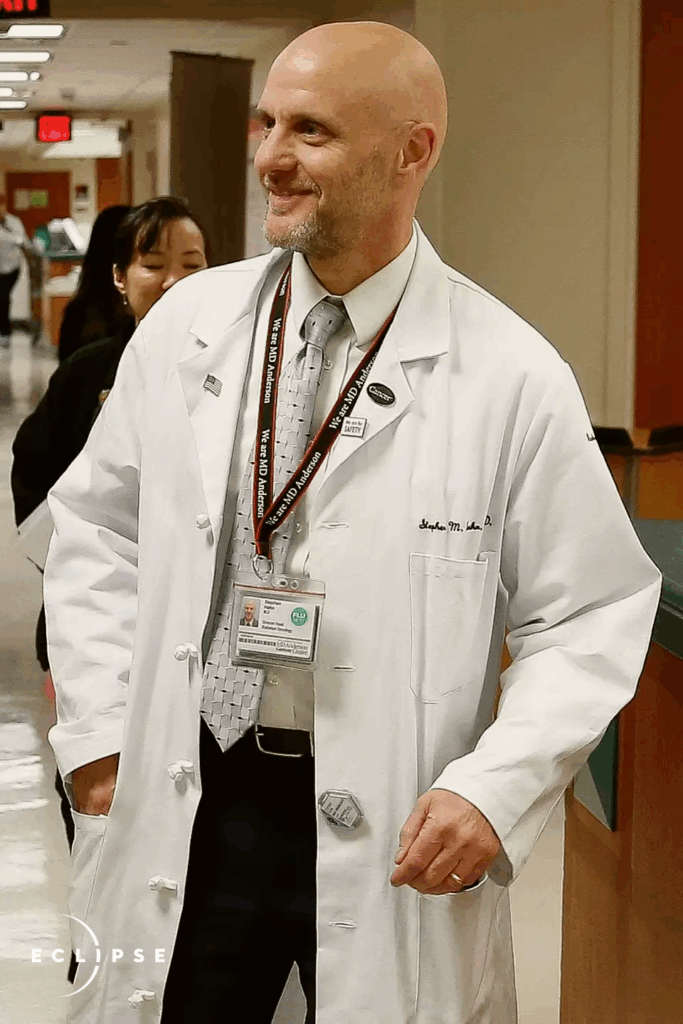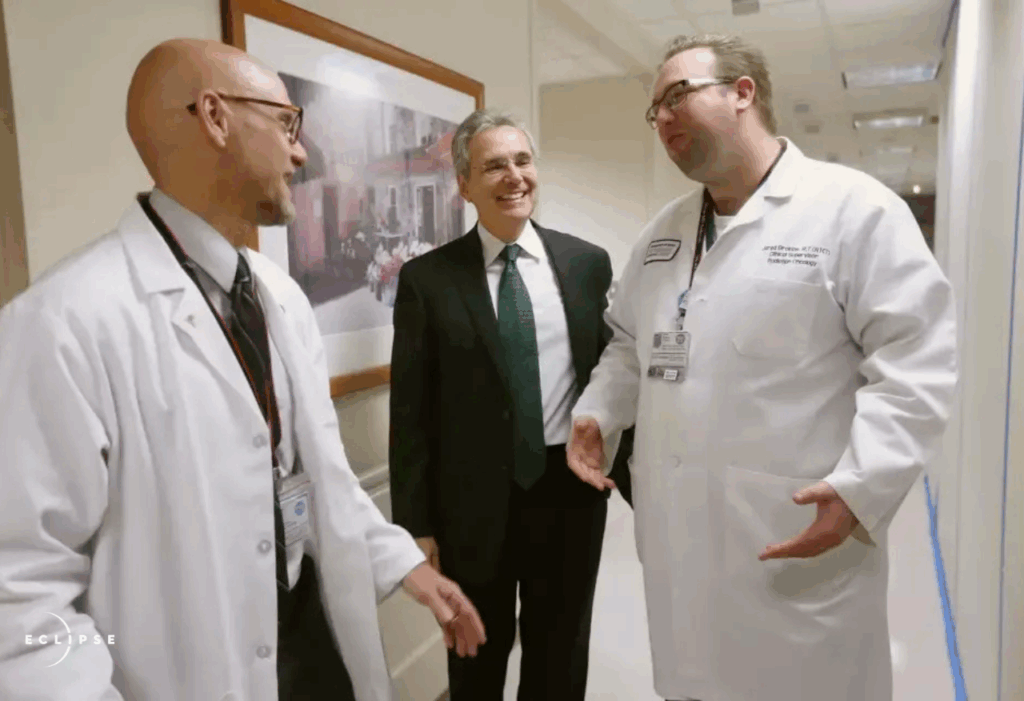Healthcare is arguably the most challenging industry in America to navigate — for everyone involved.
The onerous complexity of healthcare (and often misaligned incentives among stakeholders) makes coordination between patients, doctors, insurers, and even the policymakers who define the rules by which the system operates difficult. This dynamic not only negatively impacts patient care today, it impedes our ability to develop and deploy new therapies and technology to improve it in the future.
Then there are moments that reveal it’s actually possible to break down the barriers to effective collaboration: When a problem is so widespread and urgent that everyone has no choice but to get on the same page and solve it.
This is how the world went from battling a raging pandemic in 2020 to rolling out a vaccine in less than a year, something that typically takes 10 years. "For Dr. Steve Hahn, who was serving as FDA Commissioner at the time and coordinated the agency's work with Operation Warp Speed, the rapid development and deployment of the COVID-19 vaccine was as educational — and inspiring — as it was stressful.
As an oncologist who previously served as a top medical executive of The University of Texas MD Anderson Cancer Center in Houston, Hahn is no stranger to the complexities of providing and advancing healthcare delivery. But guiding the FDA through one of the most intense public health crises in modern history served as a unique “crash course” in accelerating medical innovation, says Hahn.

“I learned a few valuable lessons. One, when we have a vibrant private sector that is willing to fund things that others think are impossible, they can really help if the right incentives are in place across the entire system,” says Hahn. “Two, we can’t solve big problems if there are disparities in providing the solution. If people get left behind, then we haven’t actually fixed what’s broken.”
Hahn says those learnings from the FDA were formative in his decision to spend the next chapter of his career in the private sector. In August, he became CEO of Nucleus RadioPharma, a startup founded through a partnership between Eclipse and the Mayo Clinic and with an ambitious mission: Fix the infrastructure bottlenecks preventing next-generation cancer therapies from reaching the patients who need them. Hahn sees in Nucleus the chance to address one of oncology’s most urgent but overlooked problems — the inability to deliver breakthrough treatments at scale.
Unlocking “the Impossible” With Private Sector Speed and Innovation
Hahn’s experience at the FDA reshaped his view of how quickly science can advance without compromising safety, and how essential private-sector innovation is in driving that speed. His ability to quickly prioritize and make decisions amid chaos (the FDA’s workload doubled overnight, and issued ten times more emergency use authorizations than the agency had in its entire 75-year history) was built on the north star that has guided him his entire life: Improving patient care. When outside forces align incentives in an unprecedented manner, that north star becomes clear to everyone, and barriers to effective collaboration become arbitrary.
“My experience at the FDA taught me that we actually could do things that everyone has always thought were impossible,” says Hahn. “It made me think, how can we leverage this style of public-private collaboration and accelerate regulatory timelines to help patients who are dying of cancer?”

With Hahn’s background, he could have gone in almost any direction: Leading a pharmaceutical giant, advising billion-dollar biotech firms, or occupying a senior post at an esteemed academic medical institution such as the University of Pennsylvania, where he spent 20 years prior to leading the nation’s top cancer center at MD Anderson. But startups, he says, are the best mechanism to move the needle quickly. Immediately after the FDA, Hahn led a startup focused on early cancer detection before being introduced to Nucleus through the Mayo Clinic. Hahn says Eclipse’s commitment to Nucleus’ mission sealed the deal.
“After 30 years of caring for patients, you can spot authenticity quickly,” Hahn says. “Eclipse’s dedication to getting lifesaving drugs to people is real, and they’ve backed it with serious resources.”

Nucleus is building the first fully integrated platform for radiopharmaceutical development, manufacturing, and distribution — from early clinical trials through commercial scale. Nucleus’ flagship facility in Rochester, Minnesota, is already testing therapies with a range of isotopes. With new large-scale sites planned for Arizona and Pennsylvania, Nucleus aims to reduce patient waitlists, expand access beyond major academic centers, and give pharmaceutical companies a reliable partner to bring their therapies to market faster.
“It’s a complicated brew,” says Hahn. “But it takes precision oncology to the next level — getting the right treatment to the right patient at the right time. If we do this right, it’s not farfetched to say it could be a major factor in how we win the war on cancer.”
The Radiopharmaceutical Bottleneck
While there are notable differences between the rapid-fire commercialization of the COVID-19 vaccines and the mission to change the treatment outlook for one of mankind’s most intractable diseases, there are also many similarities: Complex manufacturing and logistical requirements, but also a strong foundation of clinical research from which to build from.
Today, radiopharmaceuticals represent one of the most promising advances in cancer care. They work by delivering small doses of targeted radiation directly to tumors — attacking cancer cells with extraordinary precision while sparing healthy tissue. Causing fewer side effects than traditional radiation therapy, radiopharmaceuticals can be life-changing, with the potential to treat millions of patients.
But unlike traditional drugs, they can’t be made in bulk and then stored for months. Their radioactive components decay rapidly, often within days, requiring each dose to be manufactured and delivered almost immediately. Every step, from production to patient infusion, is a race against time. A single disruption or delay can mean a missed treatment.
Currently, only a handful of radiopharmaceuticals are FDA-approved for cancers such as prostate and certain neuroendocrine tumors. Dozens more are in clinical trials for breast, pancreatic, melanoma, and other solid tumor cancers, representing a rapidly growing category of cancer treatments. Yet even if many were approved tomorrow, access would likely still be limited. Most community hospitals, where 80% of U.S. cancer patients are treated, can’t get them reliably or don’t have the expertise or infrastructure to administer them. Thus, even though radiopharmaceuticals are often reimbursed by insurance plans, patients face the prospect of traveling to large medical facilities to receive care. As a result, many never receive treatment at all.
“You can have the most amazing drug in the world. But if you can’t manufacture or distribute it, it doesn’t matter,” says Eclipse Partner and Nucleus board member Justin Butler.
This problem isn’t just limited to radiopharmaceuticals. Across the U.S., the FDA is tracking shortages of more than 120 medications. Medical science is advancing at record speed, developing new treatments for cancer, genetic diseases, and more. But the infrastructure to produce and deliver those therapies is often unable to keep up. Outdated production facilities and complex global supply chains keep both standard care and breakthrough drugs stuck in bottlenecks.
Radiopharmaceuticals magnify those challenges. Radioactive isotopes, such as Lutetium-177, Actinium-225, and Lead-212 must be attached to targeting molecules, often in small, patient-specific batches. Companies generally have a two-week window in which to generate a radioisotope, attach it to a targeted drug carrier, and send the resulting radiopharmaceutical off to a medical facility. Doing this complex manufacturing at scale is virtually unheard of.
Similar to the challenges with providing equal access to the COVID-19 vaccine — which meant ensuring more than just sufficient doses of the actual drug, but also enough supply of things like nucleic acids, syringes and needles, as well as logistics like cold transportation and storage — creating an efficient and capable cancer drug manufacturing system is a matter of figuring out how to distribute responsibility across the various stakeholders. Nucleus aims to be the central nexus of the ecosystem.
“With the vaccine, tax dollars went into de-risking a lot of the supportive logistics. At Nucleus, we want to leverage our novel technology to provide that de-risking for pharmaceutical companies developing precision medicine for cancer,” says Hahn. “All of the technology is there, it’s just about putting them all together in a rational way.”
Looking Ahead
Hahn is clear-eyed about the challenge ahead. Nucleus is attempting something no company has achieved before: A fully integrated, commercial-scale system for developing, manufacturing, and delivering radiopharmaceuticals to patients who need them, regardless of where they live. It’s a capital-intensive undertaking that demands navigating complex regulations, working with novel equipment vendors, and recruiting highly specialized talent to run the facilities.

But for Hahn’s and Nucleus’ deep bench of scientific and technical experts, the potential to transform cancer care is easily worth the effort.
“If we can help inventors with all the logistics to get to the right drug, then ultimately we can help manufacture, get approval, and commercialization,” says Hahn. “In a lot of ways, winning the war on cancer actually comes down to supply and distribution.”
Follow Eclipse on LinkedIn or sign up for Eclipse’s Newsletter for the latest on building the New Economy



